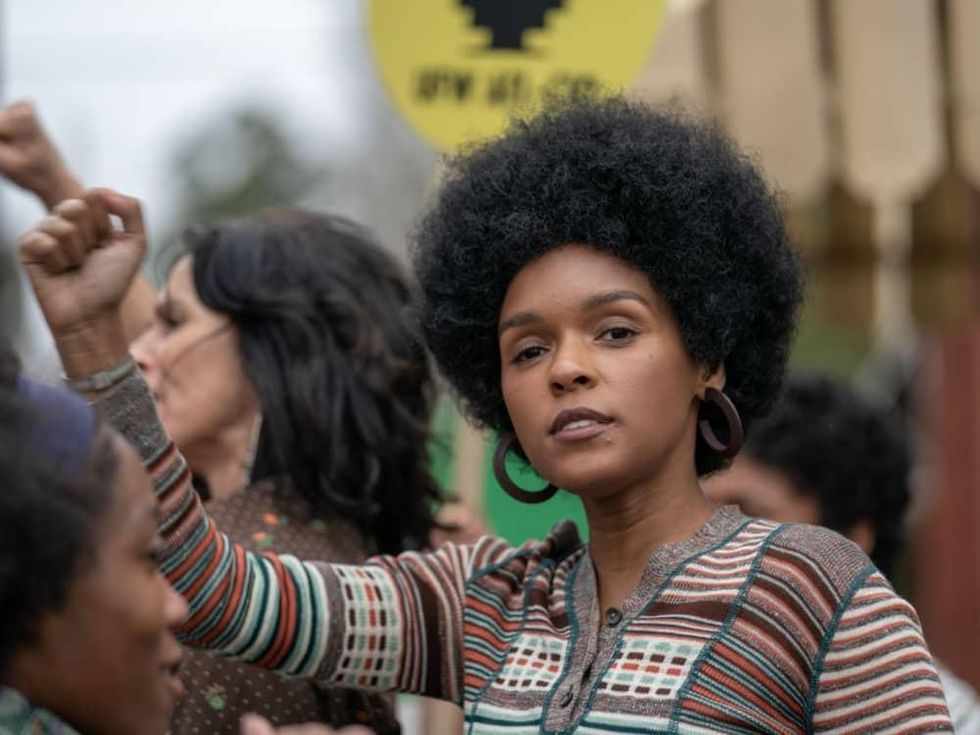Movie Review
The Glorias attempts to show the many layers of feminist icon Gloria Steinem
The success or failure of any particular film can often depend on timing. Real-world events can alter the fates of movies in both positive and negative ways. So, too, can competing projects that explore similar storylines, where the first one to reach viewers is often, though not always, the one that makes the bigger impact.
That’s the issue with which The Glorias must grapple. Focusing on the many-layered life of feminist icon Gloria Steinem, it comes just months after the FX on Hulu miniseries Mrs. America, which told the story of one of the most significant moments in Steinem’s life, the fight in the 1970s to try to get the Equal Rights Amendment passed.
That moment and many others are touched upon in writer/director Julie Taymor’s biopic, which was co-written by Sarah Ruhl and adapted from Steinem’s 2015 book, My Life on the Road. The film starts off with some striking imagery of Steinem at various ages in black-and-white riding on a bus while the world in color goes by outside the window. Taymor returns to the bus motif repeatedly throughout the film, presumably to visualize the title of Steinem’s autobiography.
The first half of the film is jarring, as it jumps around at will to Steinem’s different ages, from her young childhood with an itinerant, grifter father (Timothy Hutton), to her older childhood with single mom and tap dance dreams, to traveling on a train in India in her young adulthood.
It’s this age, as embodied by Alicia Vikander, that gets the most play early on, as Steinem embarks on a career as a journalist, only to be objectified at every turn. She uses this to her advantage at one point, going undercover as a bunny at a Playboy club. Eventually, she breaks out on her own, and by the time the film gets to her Ms. magazine phase, Julianne Moore takes over the role.
It’s here, oddly, where Taymor seems to become much less adventurous. The first half is often fantastical, with scenes in one location and time blending into others in completely different locations and times. However, the second half is mostly straightforward, covering much of the same ground that was covered in Mrs. America. The events portrayed are certainly consequential, but the lack of flair or drama inhibits the sequences.
Despite giving a full-life view of Steinem, the film never succeeds at making her into a complete person. We’re shown different things in her life that influenced her views, but she still remains an enigma. It’s one of the drawbacks of film that no movie, no matter how long, can give as much detail on a person as a TV series or book can. So even though Mrs. America told the stories of many different women, Steinem made a larger impact there than she does here.
The four actors who portray Steinem through the years vary in quality. There’s nothing inherently wrong with the performances of either Ryan Kiera Armstrong or Lulu Wilson, who play her as a child, but neither is given enough to do to warrant praise. Vikander is good and certainly looks the part, but the Swedish actress can’t quite master the accent. Moore is predictably great, but her version doesn’t exactly line up with Vikander’s, and she never gains any momentum. Bette Midler and Janelle Monáe both do good work in limited roles.
For many, Gloria Steinem is one of the most influential women in the United States in the past 50 years, but The Glorias fails to show exactly why that is. Turning her portrayal over to four different actors is a great idea, but the film never fully finds its footing.
---
The Glorias is available for purchase on digital VOD options like VUDU, GooglePlay, and Fandango Now, and is also streaming exclusively via Prime Video.




